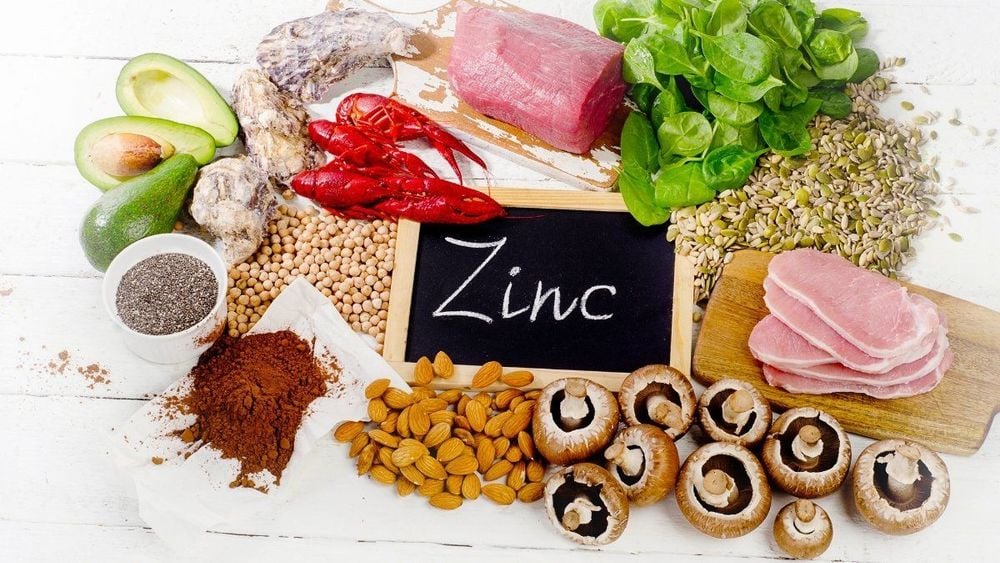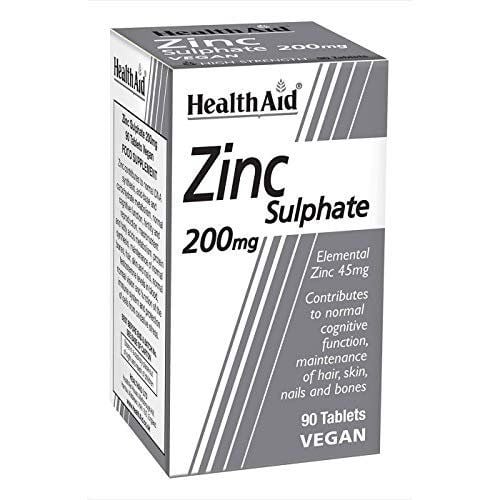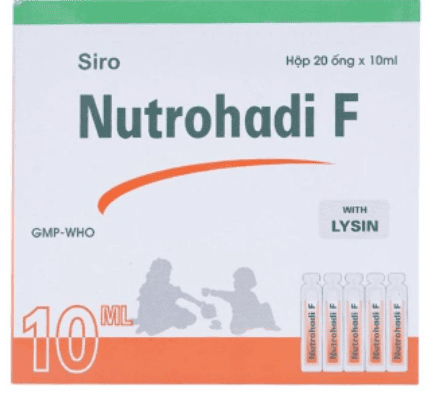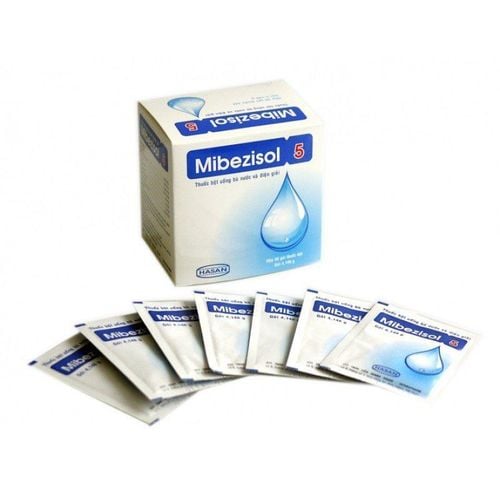This is an automatically translated article.
Statistics in Vietnam show that about 40% of young children are zinc deficient (children under 1 year old). Therefore, zinc supplementation for young children and infants is an extremely important issue in the process of caring for and raising children. Supplementing with enough zinc helps children eat well, sleep peacefully, and supports height growth and intellectual development in the most comprehensive way.
1. The role of zinc
Zinc is an essential trace mineral. In the human body, zinc is a component that is directly involved in the production of enzymes and thereby promotes protein biosynthesis. It is this process that will help children develop in height, muscle, immune system...
Accordingly, a well-functioning immune system will help children limit the attack of harmful agents such as viruses. , bacteria, fungi, avoid minor illnesses, increase the sense of senses such as taste, smell... and help children eat better.
Zinc deficiency in young children is a very common trait, especially in infants, children and adolescents because the body's need for this mineral is directly proportional to the age of the child. The body grows and develops effectively when the process of protein biosynthesis is favorable and of course the zinc component is indispensable. Most of the enzymes that catalyze the metabolic reactions and synthesis for the body's growth process require the presence of zinc.
However, unlike other essential nutrients, zinc supplementation is considered a double-edged sword. If supplements are not enough or overdose, they can cause children to feel abdominal pain, nausea, anorexia, digestive disorders and worse, slow down the body's growth...
MORE : How to supplement zinc for children with anorexia
2. Dosage of zinc supplements for young children
The need for zinc supplements for infants and children will vary with different ages. In addition, zinc supplementation for young children should only be applied when zinc deficiency in young children has clinical manifestations and biochemical test indicators or when the child has gastrointestinal mucosal lesions leading to high risk of complications. reduced absorption of zinc.
Parents should remember that zinc supplements for infants and young children must follow the guidance of specialists. Specifically, the dosage of zinc supplements for young children is from 0.5-1.5mg of elemental zinc/kg body weight/day.
In addition, young parents can refer to the dosage of zinc supplements according to the following World Health Organization (WHO) guidelines:
Children from 0 to 6 months old: 2mg/day; Children from 7 to 11 months old: 3mg/day; Children from 1-3 years old: 3mg/day; Children from 4 to 8 years old: 5mg/day; Children from 9 to 13 years old: 8mg/day; Children 14 years and older: Boys need 11mg/day; Girls need 9mg/day.

Bổ sung kẽm cho trẻ sơ sinh là điều rất cần thiết
3. How long does zinc supplement for young children?
When young children with zinc deficiency show symptoms, parents should take the child to a health facility or nutrition center to be examined by a specialist doctor, assess the condition, determine the cause and guide how care and treatment. At that time, the doctor is the one to decide whether or not, the dose, and the time of zinc supplementation for young children. The time of zinc supplementation for young children usually lasts about 2-3 months or depends on the actual condition of each child.
In the case of children with acute diarrhea, zinc supplementation during treatment is an extremely necessary supportive method. Accordingly, the treatment regimen for acute diarrhea in children under 6 months of age recommends supplementing with 10mg of zinc/day and children aged 6-60 months need to be supplemented with 20mg of zinc/day. In addition, this regimen also prescribes the duration of zinc supplementation for infants and young children with acute diarrhea for 14 consecutive days.
4. Zinc supplementation for young children through daily nutrition
In order for young children to be zinc deficient, parents or caregivers should pay attention to the nutritional needs of a variety of foods, especially foods of animal origin (foods with high nutritional value). Plant origin often contains low zinc content with low biological value, the body's ability to absorb zinc is not high). Foods rich in zinc should be added to children every day (zinc content is calculated in 100g of food):
Scallops: 13.4mg; Radish: 11mg; Old copra: 5mg; Peas: 4mg Soybeans: 3.8mg; Egg yolk : 3.7mg; Lamb: 2.9mg; Wheat flour: 2.5mg; Lean pork: 2.5mg; Guava: 2.4mg Sticky rice: 2.2mg; Beef: 2.2mg; Sweet potato: 2mg; Peanuts: 1.9mg; Rice: 1.5mg; Millet: 1.5mg; Chicken meat: 1.5mg.
4.1. Children under 6 months old
The best source of zinc for infants and young children at this age is breast milk. Breast milk is a huge source of zinc and many antibodies and other nutrients. During this period, mothers should limit breastfeeding and try to take advantage of the abundant breast milk to help the baby develop the best. Therefore, mothers should pay attention to fully supplement zinc as well as other nutrients in their meals to improve the ability to supplement zinc for infants and young children.
Some notes that pregnant mothers need to know to add zinc to their daily diet:
Food group rich in zinc: shrimp, crab, meat, eggs, fish... Food group rich in vitamin C: oranges, lemons, tangerines, grapefruits... Vitamin C and zinc have the ability to support mutual absorption; Adding nuts, beans, especially soybeans... Establishing a diet full of nutrients is an indirect measure of zinc supplementation for young children.
4.2. Children 6 months and up
At this stage, children begin to have feelings and perceptions about food, so mothers need to change their daily diets to avoid boredom, but still have to ensure adequate nutrition. .

Bổ sung kẽm cho trẻ sơ sinh thông qua chế độ dinh dưỡng hàng ngày
4.3. Children suffering from malnutrition
Parents of malnourished children should pay attention to preparing dishes from foods rich in nutrients such as fish, shrimp, eel, crab, oysters, meat or legumes, seeds and full of green vegetables (such as cotton). broccoli, broccoli, even garlic).
4.4. Anorexia baby
It is extremely difficult to force an anorexic child to comply with the parent's nutrition regimen. Therefore, in order to both help children eat more deliciously and provide adequate zinc for young children, parents should try to meet the wishes and preferences of the baby.
Some zinc-rich foods that most children enjoy and increase their appetite include: Dark chocolate, buttermilk, yogurt, seafood, whole grains...
In addition to regular servings days, parents can supplement zinc for young children through supplementary products, lasting from 2 to 3 months and then stopping. In addition, attention should be paid to adding vitamins A, B6, C to increase zinc absorption for children.
5. What should be noted when supplementing with zinc for young children?
Taking zinc supplements for young children should be done 30 minutes after eating; Do not take zinc supplements for young children and iron supplements at the same time, should be taken at least 2 hours apart; Do not take zinc and calcium tablets at the same time, should supplement zinc for young children at least 2 hours before calcium; To optimize the absorption of zinc, the children's menu should add foods rich in vitamin C, reduce fiber, iron and copper. Zinc is an essential trace mineral. However, zinc supplements for infants need to be followed strictly as directed by a doctor or nutritionist to avoid unwanted side effects.
On the market, zinc is used as a micronutrient, used to provide the body with 2 types of preparations: synthetic zinc and biological zinc. While synthetic zinc is produced industrially from chemical reactions in pharmaceutical factory labs, bioavailable zinc is derived entirely from nature. Accordingly, to produce biological zinc, scientists extract it from organic food sources, similar to how the body absorbs zinc from food. This helps to increase the absorption of zinc into the blood of biological zinc up to 3.7 times compared to synthetic zinc. Therefore, parents need to pay attention to supplement biological sources of zinc from nature so that children can absorb it best.
In addition to zinc, parents also need to supplement their children with other important vitamins and minerals such as lysine, chromium, B vitamins,... errands.
For more nutritional knowledge and child care for each age, parents should regularly visit the website vimec.com and make an appointment with the leading doctors, pediatric and nutrition experts of the National General Hospital. Vinmec when needing advice on children's health.













